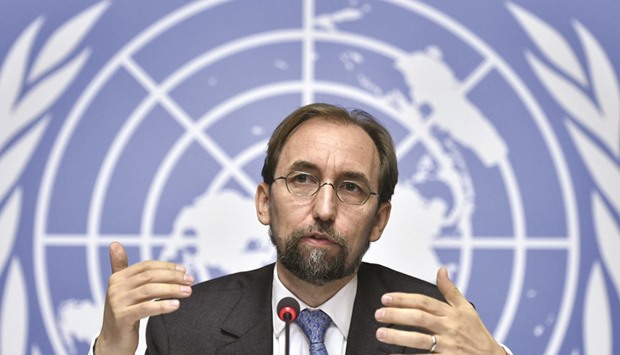Myanmar’s efforts to deal with the Rohingya minority in its conflict-torn Rakhine state undermine the security of the state and the region, UN human rights chief Zeid Ra’ad al-Hussein has warned.
“Myanmar’s handling of northern Rakhine is a lesson in how to make a bad situation worse,” said Zeid, the UN high commissioner for human rights.
Rakhine has been beset by conflict between Buddhists and the Muslim minority Rohingyas for decades.
Fighting flared up again at the beginning of October when Muslim militants allegedly killed nine border guards.
Security forces have imposed “collective punishment on an entire community, with reprisals against already vulnerable Rohingya Muslims continuing more than two months after the border post attacks,” Zeid said.
The UN Human Rights Office has been receiving reports of killings, rapes and burning of Rohingya homes on a daily basis.
Some 27,000 people have fled to neighbouring Bangladesh as a result of the government’s security operations.
Tackling internal security problems by force rather than addressing their root causes leads to “mass displacement, the nurturing of violent extremism, and everybody ultimately losing,” Zeid warned.
The emergence of a well-organised and well-funded Muslim militancy behind the attacks on security forces in Rakhine could further destabilize the conflict-ridden region, the think tank International Crisis Group said this week in a report.
Zeid demanded that the government should finally allow UN observers to visit Rakhine state.
“Given the continued failure to grant us access, we can only fear the worst,” he said.

Zeid Ra’ad al-Hussein
